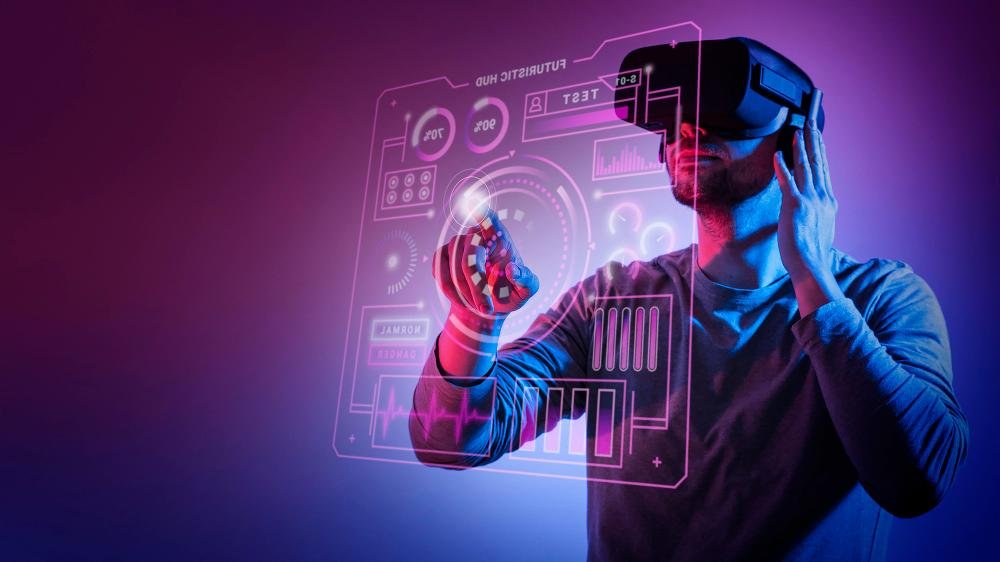By: Vajratiya Vajrobol, International Center for AI and Cyber Security Research and Innovations (CCRI), Asia University, Taiwan, vvajratiya@gmail.com

Image by Freepik
The term “metaverse” describes the merged virtual and physical reality that results in a shared communal virtual environment. Within the healthcare industry, the metaverse holds the capacity to change the ways in which healthcare services are provided, accessed, and experienced. The healthcare industry may be impacted by the metaverse in the following ways:
- Telemedicine and Virtual Consultations
Healthcare providers could conduct virtual consultations and offer medical services in fully immersive virtual worlds via the metaverse. This has the potential to improve access to healthcare, especially for those who live in rural or underdeveloped areas [1].
- Education and Training in Medicine
For medical education and training, the metaverse can be used to build lifelike and immersive simulations. To improve their knowledge, comprehension, and empathy, healthcare professionals, students, and even patients should interact with virtual scenarios [2].
- Monitoring Patients Remotely
Patients may enjoy a more interactive and engaging remote patient monitoring process when metaverse technologies are integrated. Healthcare professionals could be able to monitor and evaluate real-time data transmitted by wearable sensors and equipment in a virtual environment [3].
- Healing and Counselling
Rehabilitation and therapy can benefit from the use of augmented reality (AR) and virtual reality (VR) in the metaverse. Immersion activities tailored to support recovery could be utilised by patients going through rehabilitation or healing from accidents [4].
- Applications in Health and Well-Being
Applications for health and wellbeing that range from online exercise courses to stress management and mindfulness training can be supported by the metaverse. Immersion activities that support both mental and physical health are available to users [5].
- Clinical Trials and Investigations
The metaverse may make it easier for researchers and clinical trial participants to collaborate virtually. This could improve the effectiveness of the study process overall, boost recruitment efforts, and expedite data collecting [6].
- Mental health services and support groups
A more immersive and private setting for seeking emotional support and counselling may be made available to people via virtual support groups and mental health services offered within the metaverse [7].
To summarise, the creation of healthcare applications using metaverse technologies is continuously developing. The metaverse has the power to revolutionise healthcare delivery, access, and experience.
References
- El Saddik, A., & Ghaboura, S. (2023). The Integration of ChatGPT with the Metaverse for Medical Consultations. IEEE Consumer Electronics Magazine.
- Ahuja, A. S., Polascik, B. W., Doddapaneni, D., Byrnes, E. S., & Sridhar, J. (2023). The digital metaverse: Applications in artificial intelligence, medical education, and integrative health. Integrative Medicine Research, 12(1), 100917.
- Shah, V., & Khang, A. (2023). Metaverse-Enabling IoT Technology for a Futuristic Healthcare System. In Handbook of Research on AI-Based Technologies and Applications in the Era of the Metaverse (pp. 165-173). IGI Global.
- Rahayu, D. S., Atmoko, A., Muslihati, M., Setiyowati, A. J., Aditama, M. H. R., & Setyorini, S. (2023). Embracing the future: how the metaverse revitalises counsellors and combats compassion fatigue. Journal of Public Health, .
- Cho, K. H., Park, J. B., & Kang, A. (2023). Metaverse for Exercise Rehabilitation: Possibilities and Limitations. International Journal of Environmental Research and Public Health, 20(8), 5483.
- Lee, H., Yi, Y., Moon, W., & Yeo, J. Y. (2023). Exploring the potential use of the metaverse in nurse education through a mock trial. Nurse Education Today, 131, 105974.
- Cho, S., Kang, J., Baek, W. H., Jeong, Y. B., Lee, S., & Lee, S. M. (2023). Comparing counseling outcome for college students: Metaverse and in-person approaches. Psychotherapy Research, 1-14.
- Bhushan, K., & Gupta, B. B. (2017). Security challenges in cloud computing: state-of-art. International Journal of Big Data Intelligence, 4(2), 81-107.
- Singh, A., & Gupta, B. B. (2022). Distributed denial-of-service (DDoS) attacks and defense mechanisms in various web-enabled computing platforms: issues, challenges, and future research directions. International Journal on Semantic Web and Information Systems (IJSWIS), 18(1), 1-43.
- Gupta, B. B., Perez, G. M., Agrawal, D. P., & Gupta, D. (2020). Handbook of computer networks and cyber security. Springer, 10, 978-3.
- Zhang, Q., Guo, Z., Zhu, Y., Vijayakumar, P., Castiglione, A., & Gupta, B. B. (2023). A deep learning-based fast fake news detection model for cyber-physical social services. Pattern Recognition Letters, 168, 31-38.
Cite As:
Vajrobol V. (2024) Metaverse in Healthcare Domain, Insights2Techinfo, pp.1